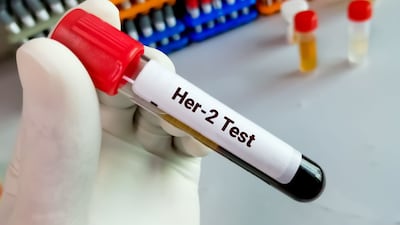Market Access
Cardiovascular disease is moving to the top of the EU’s health agenda with the release of the Safe Hearts Plan, European Parliament scrutiny of which is expected at the end of Q1. Medical device companies applaud the initiative but will seek more input as the plan evolves.
Accelerated approvals of novel products rebounded in 2025 as drug development adapted to major pathway changes enacted in the FDA Omnibus Reform Act, but pending applications suggest a potentially bigger impact outside oncology in 2026.
ACC/AHA guidelines are reshaping US payer policies, expanding coverage and access to breakthrough cardiovascular therapies like SGLT2 and PCSK9 inhibitors. But costs, red tape, and uneven access still stand in the way.
Enhertu's approval for ever-lower levels of HER2 expression is pushing standard immunohistochemistry assays beyond their limits. Pathologists say they have a solution.
In today’s rapidly shifting US healthcare landscape, direct-to-consumer strategies, once used mainly by pharma companies, are now drawing strong interest from payers.
Biotech’s pricing playbook is being upended as US Most-Favored Nation rules collide with Europe’s evolving International Reference Pricing models. The result: launch strategies, deal structures and innovation pipelines are all under pressure.
Industry warns healthcare infrastructure – not manufacturing – may be the real bottleneck as cell therapies eye mass-market diseases.
The rise and fall of US tariffs and the chill headwind from China’s state procurement policies have blown onto medtech’s radar. But how to monetize AI is the dominant concern up and down the industry.
During his 40 years at Royal Philips, Bert van Meurs has seen the medical devices business grow in line with the evolving needs of healthcare providers with whom the company partners in customer and patient focused innovation.
Executives leading the commercialization of cell and gene therapies are informing how the industry approaches everything from manufacturing strategy to physician education.
Issues that had been concerns in Trump’s first term are realities now, but industry has also seen some successes. Trump’s personalistic style of governance means that larger firms may be at an advantage because of their greater flexibility to cut deals on individual products.
The pharmaceutical industry has been pushing back on a deeply unpopular rebate on products deemed to be “free combination” medicines in Germany.
Amid a decline in global clinical research share, the EU, UK and Switzerland have launched initiatives for fast-track reviews of clinical trial applications and set ambitious targets to shorten trial setup times.
The culmination of the MedTech Innovator APAC awards program 2025 comes later this month when the top prizes are handed out at the grand final in Singapore. But all cohort companies benefit from the competition’s mentoring process, says awards organizer Fredrik Nyberg.
Chinese medtechs are expanding rapidly worldwide, but gaining market access within China itself – poised to become the world’s largest medtech market – is proving to be a very different challenge.
A new report highlighting 62 key drug launches expected in 2026 includes five products that are predicted to hit a golden trifecta of being a first launch, having practice-changing potential and the promise of being a blockbuster.
The EU is diversifying its trading partners, which means that new markets may open up to the pharmaceutical industry, countering transatlantic tensions.
C-suite executives from Stryker, Intuitive Surgical and Fresenius passed a mainly upbeat verdict on the Indian medtech market and industry. Their thoughts are encapsulated in part two of In Vivo’s APACMed 2025 conference review.
APACMed’s Asia-Pacific medtech forum moved outside Singapore for the first time in its 11-year history, to India, a country of big medtech ambitions and top five global market aspirations by 2035. This first In Vivo conference report describes India’s medtech infrastructure efforts.
June Raine was a “hard act to follow” at MHRA, but new chief executive Lawrence Tallon is looking to the future in setting out a vision for the UK regulator.




















